Health Facts
-
Mental health includes our emotional, psychological, and social well-being. It affects how we think, feel, and act. It also helps determine how we handle stress, relate to others, and make choices. Mental health is important at every stage of life, from childhood and adolescence through adulthood.
Source: http://www.mentalhealth.gov/basics/what-is-mental-health/
-
- Eating or sleeping too much or too little
- Pulling away from people and usual activities
- Having low or no energy
- Feeling numb or like nothing matters
- Having unexplained aches and pains
- Feeling helpless or hopeless
- Smoking, drinking, or using drugs more than usual
- Feeling unusually confused, forgetful, on edge, angry, upset, worried, or scared
- Yelling or fighting with family and friends
Source: http://www.mentalhealth.gov/basics/what-is-mental-health/
-
Myth: Mental health problems don't affect me. Fact: Mental health problems are actually very common. In 2011, about:
- One in five American adults experienced a mental health issue
- One in 10 young people experienced a period of major depression
- One in 20 Americans lived with a serious mental illness, such as schizophrenia, bipolar disorder, or major depression Suicide is the 10th leading cause of death in the United States. It accounts for the loss of more than 38,000 American lives each year, more than double the number of lives lost to homicide
Source: http://www.mentalhealth.gov/basics/myths-facts/index.html
-
- Major depression
- Attention deficit hyperactivity disorder (ADHD)
- Suicide, among young African American men
- Posttraumatic stress disorder (PTSD), because African Americans are more likely to be victims of violent crime
Source: https://www.nami.org/Find-Support/Diverse-Communities/African-Americans
-
- Have you treated other African Americans?
- Have you received training in cultural competence or on African American mental health?
- What is your recommended treatment plan, and what are the side effects?
- How do you see our cultural backgrounds influencing our communication and my treatment?
- How do you plan to integrate my beliefs and practices in my treatment?
- How will you incorporate family care into my treatment?
Source: https://www.nami.org/Find-Support/Diverse-Communities/African-Americans
Statistics
- One in four adults −approximately 61.5 million Americans−experiences mental illness in a given year. One in 17−about 13.6 million−live with a serious mental illness such as schizophrenia, major depression or bipolar disorder.
- Only 2 percent of psychiatrists, 2 percent of psychologists and 4 percent of social workers in the United States are African American.
- Across a recent 15-year span, suicide rates increased 233 percent among African Americans aged 10-14 compared to 120 percent among Caucasian Americans in the same age group across the same span of time.
In Partnership with: Poole College of Management, College of Humanities and Social Sciences, National Science Foundation, Penn State
Take Action, Get Tested: Find Your Local Testing Center Why Get Tested?
